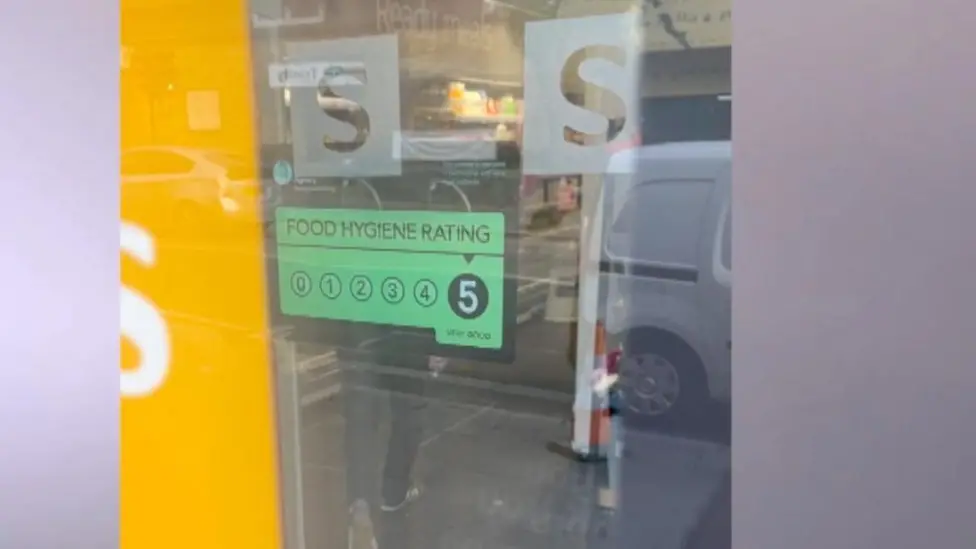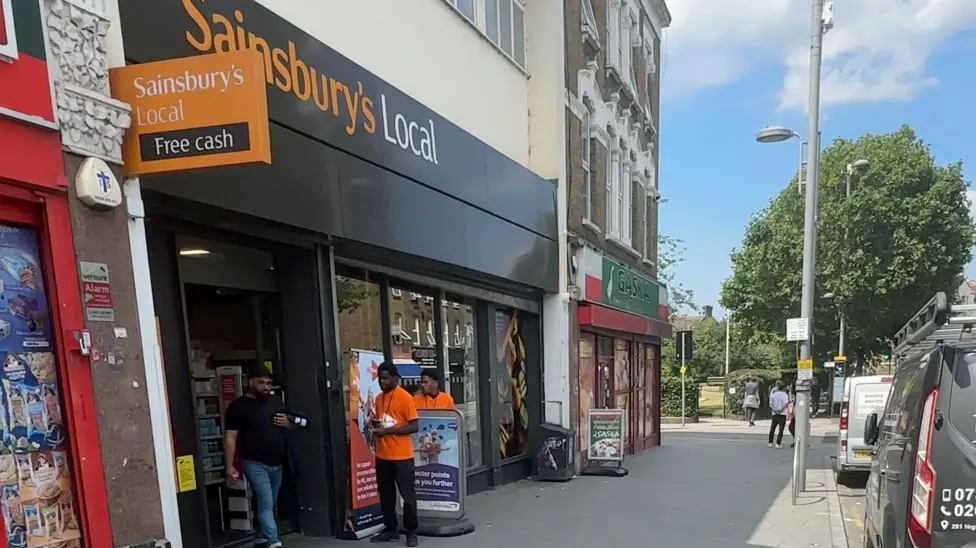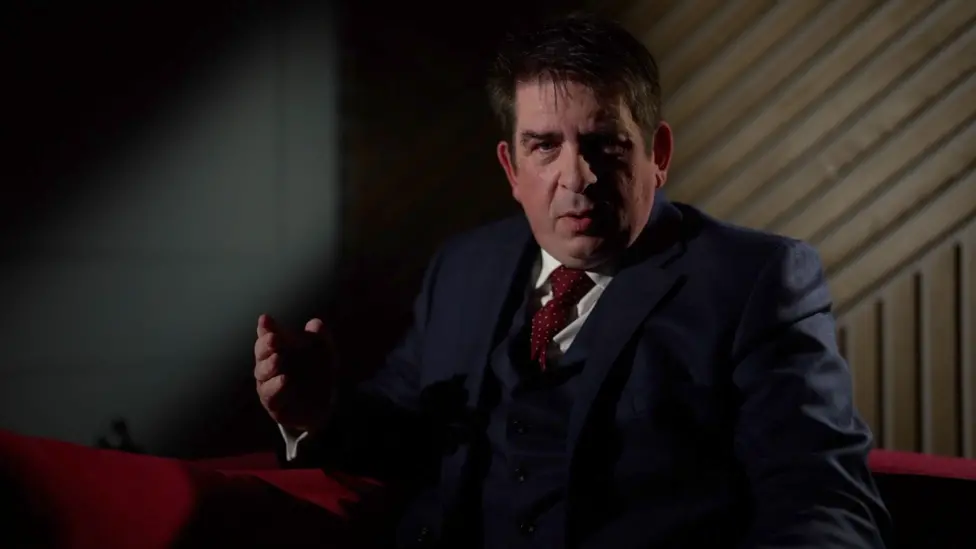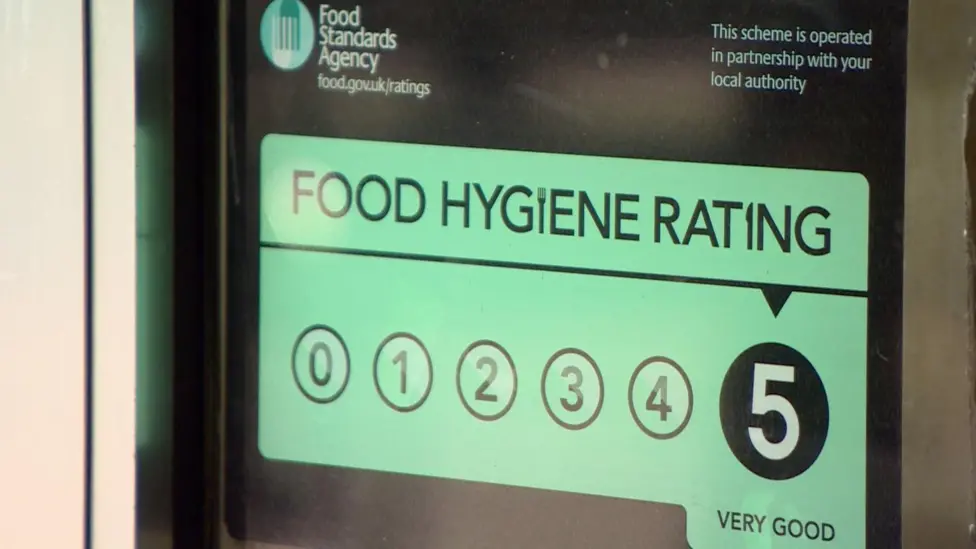Food Hygiene Ratings Scandal: Businesses Exposed for Misleading Customers
Posted by Emma on 8th Oct 2024 Reading Time:
An undercover BBC investigation has revealed that food establishments across east London, including a Sainsbury's store, have been displaying inaccurate food hygiene ratings, misleading customers and, in some cases, engaging in fraudulent behaviour. The findings raise serious concerns about food safety standards and the effectiveness of the UK's voluntary food rating system.

Food inspectors found mouse droppings and widespread filth in the store - Source BBC
Widespread Deception in Food Hygiene Practices
The investigation uncovered a troubling pattern of businesses—from small local restaurants to large supermarket chains—misrepresenting their food hygiene ratings to the public. Over the course of several weeks, the BBC's investigative team visited dozens of food outlets in east London following reports of widespread deception. The probe revealed that businesses were displaying higher-than-earned ratings and lying to customers when questioned about their official scores.
The investigation, conducted with hidden cameras during July and August, highlighted significant hygiene problems in the London Borough of Waltham Forest. As of September 2024, the borough holds the highest percentage of establishments rated between zero and two on the Food Standards Agency's (FSA) food hygiene scale. The scale, which ranks businesses from zero (indicating urgent improvement needed) to five (very good), aims to provide consumers with transparency on food handling and cleanliness.
Sainsbury's and Other Major Offenders
Among the most high-profile offenders was a Sainsbury's "Local" store in Leyton. Despite displaying a top rating of five stars, the store's official rating at the time was zero. An FSA inspection had uncovered severe issues, including mouse droppings and unsanitary conditions throughout the store. Additionally, allergen labelling was missing from some products, posing a risk to customers with food allergies.
When confronted with the findings, Sainsbury's acknowledged the error and removed the incorrect rating. The supermarket giant stated that 95% of its stores maintain a five-star rating and promised to improve hygiene standards at the Leyton branch, which has since raised its rating to three.
Other businesses also fell under scrutiny. Nadeem Halal Meat & Grocery, Café Mondial, and Pizza & BBQ Express were all found to be displaying misleading ratings. Despite their low hygiene scores, these establishments assured BBC reporters that their standards were high. Inspections, however, revealed filthy conditions, pest infestations, and inadequate allergen information.

Sainsbury‘s misled customers for many months by claiming both in signage and on its website it had a top hygiene rating at this store - its actual score was zero - Source BBC
Expert Opinions on the Risks
Jon Payne, a food safety lawyer, expressed outrage over the findings, emphasising that misrepresenting food hygiene ratings not only deceives customers but also violates the law. "Businesses that lie about their food ratings are potentially committing fraud," he said, adding that such behaviour could put customers' health at serious risk. He pointed out that the problem extends beyond east London, with similar issues cropping up across the UK.
Payne stressed the dangers of poor food hygiene, including the risk of bacterial growth, cross-contamination, and foodborne illnesses. One such case involved Selena Green, who became critically ill after consuming a chicken pastry from a separate establishment with a falsely displayed five-star rating. Her experience underscored the potentially life-threatening consequences of lax food hygiene practices.

Food safety lawyer Jon Payne, who assessed the BBC's evidence, said those telling lies about their food hygiene ratings were "effectively criminals" - Source BBC
Calls for Stronger Regulations
The BBC investigation has prompted renewed debate about England's voluntary food hygiene rating system. In contrast to Wales and Northern Ireland, where businesses are legally required to display their food hygiene ratings, English establishments are not obliged to do so. Critics argue that this voluntary system allows dishonest businesses to mislead customers by selectively displaying or even falsifying their scores.
Richard Reichman, a solicitor specialising in consumer protection, believes that mandatory food hygiene rating displays, as seen in other parts of the UK, could help prevent such incidents. "The voluntary nature of the system in England may be contributing to the problem we're seeing," he said.
Waltham Forest Council, responsible for enforcing food hygiene standards in the area, pledged to investigate the BBC's findings. The council has closed 50 businesses this year for failing to meet hygiene standards. The Food Standards Agency also stated that while 91% of businesses in England display the correct ratings, it continues to advocate for a mandatory system to ensure consistency and transparency.

The Food Standards Agency rating scheme ranges from 0 (urgent improvement necessary) to 5 (very good) - BBC Source
A Serious Issue Needing Urgent Reform
This investigation serves as a stark reminder of the importance of food hygiene and accurate ratings' role in protecting public health. As more cases of misrepresentation come to light, calls for stricter enforcement and mandatory rating displays are growing. Consumers rely on these ratings to make informed choices, and businesses must be held accountable for any attempt to deceive the public about their hygiene standards.
The government's response to the growing calls for reform remains to be seen, but the public interest in prioritising food safety cannot be ignored.

